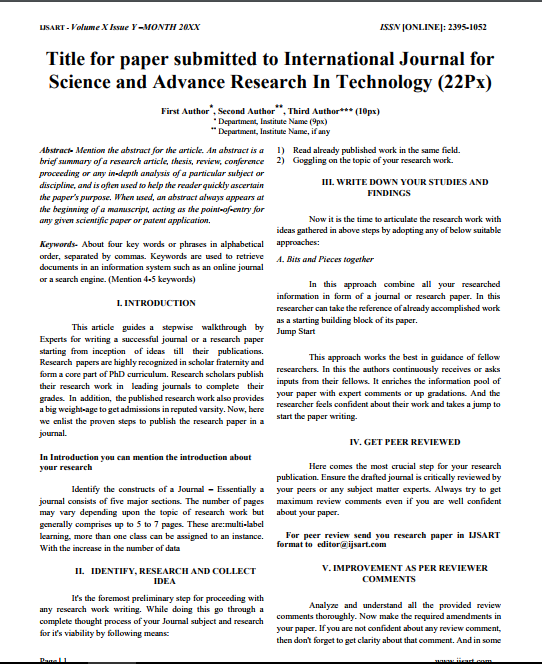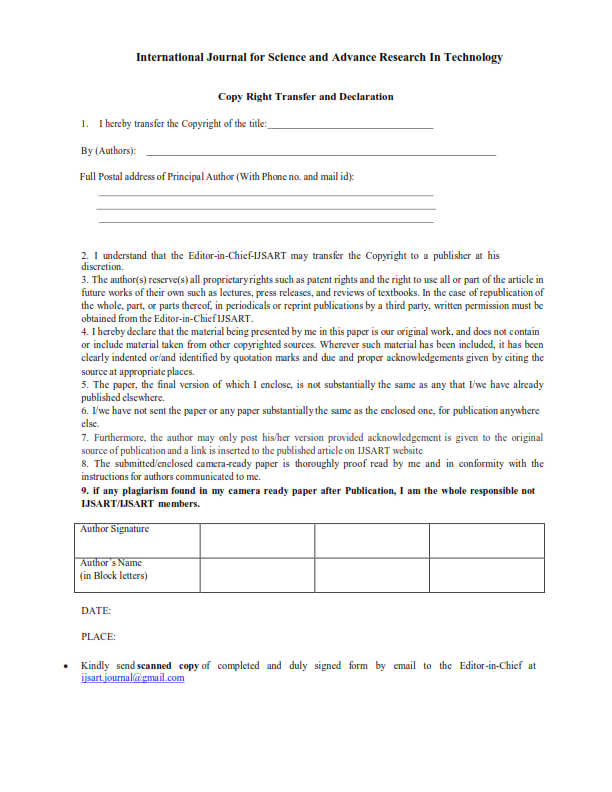Impact Factor
7.883
Call For Paper
Volume: 11 Issue 04 April 2025
LICENSE
An Efficient Adsorption Approach For Sustainable Removal Of Heavy Metals From Wastewater Using Biochar Derived From Cowpea Husk
-
Author(s):
S.Mohana | T.Sathieshkumar
-
Keywords:
Heavy Metal Removal, Wastewater Treatment, Adsorption, Biochar, Cowpea Husk, Pyrolysis, Eco-friendly Adsorbent, KOH Activation, Metal Remediation, Sustainable Water Treatment.
-
Abstract:
Heavy Metal Contamination In Wastewater Poses Significant Environmental And Health Hazards, Necessitating Efficient Removal Strategies. Industrial Discharges Contribute To The Accumulation Of Toxic And Carcinogenic Heavy Metals In Aquatic Ecosystems, Leading To Severe Consequences For Both Human And Marine Life. Among The Various Remediation Techniques, Adsorption Has Emerged As A Highly Effective, Cost-efficient, And Environmentally Sustainable Method For Heavy Metal Removal. This Study Explores The Potential Of Biochar Derived From Cowpea Husk Powder Through KOH-assisted Pyrolysis As A Novel Adsorbent For Heavy Metal Remediation. The High Surface Area And Enhanced Adsorption Capacity Of Biochar Significantly Improve Metal Removal Efficiency. Experimental Findings Demonstrate A 93% Removal Efficiency For Heavy Metals At An Initial Concentration Of 10 Ppm And PH 8. The Study Further Investigates The Impact Of Key Operational Parameters, Including Adsorption Time, PH Variation, Feed Concentration, And Adsorbent Dosage, On Metal Removal Efficiency. The Results Underscore The Viability Of Biochar As A Sustainable Alternative To Conventional Adsorbents For Wastewater Treatment, Offering A Promising Solution For Mitigating Heavy Metal Pollution.
Other Details
-
Paper id:
IJSARTV11I4102981
-
Published in:
Volume: 11 Issue: 4 April 2025
-
Publication Date:
2025-04-02
Download Article


